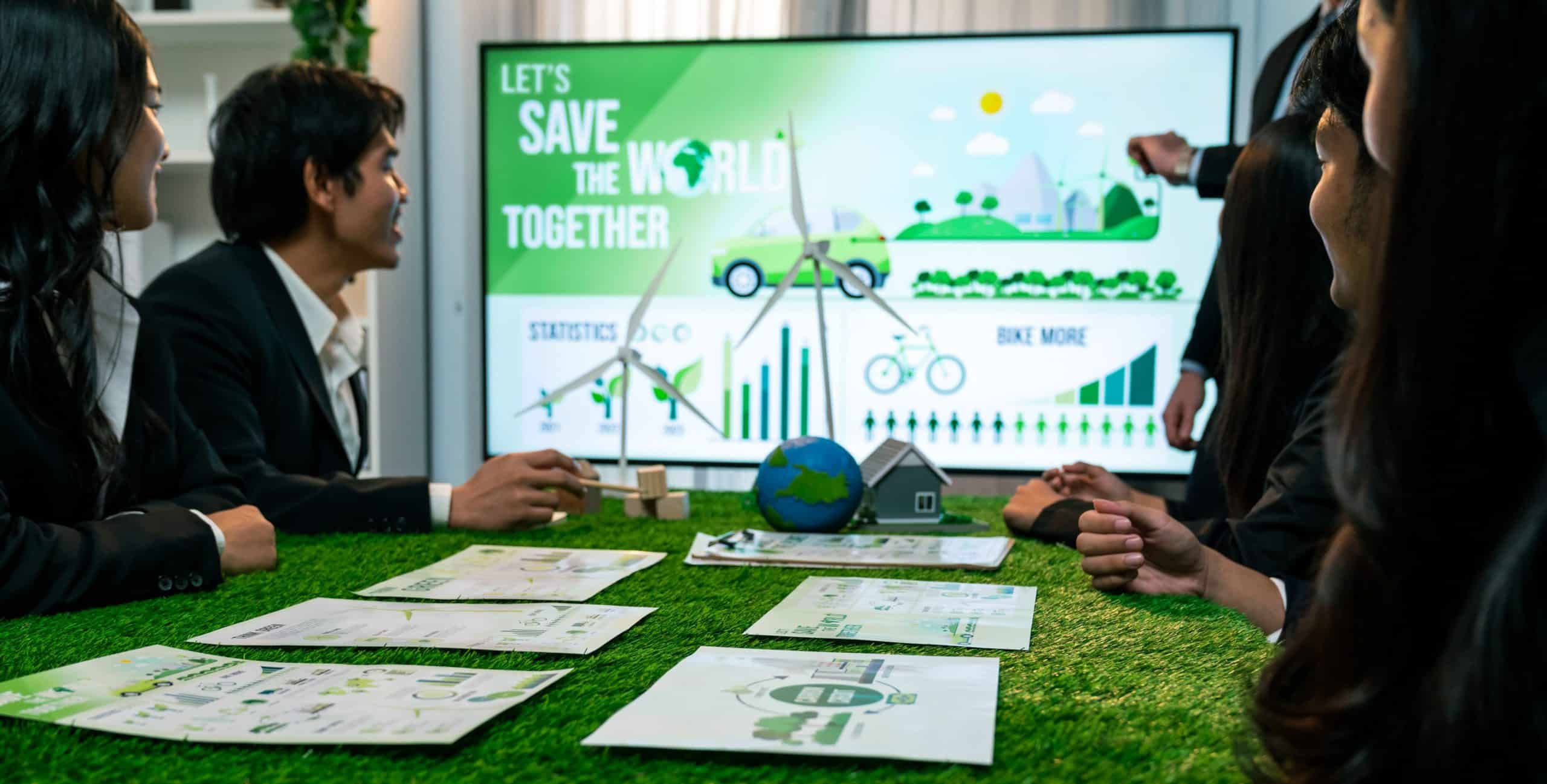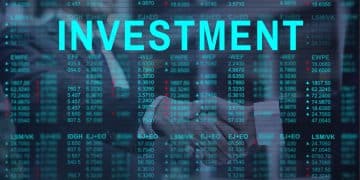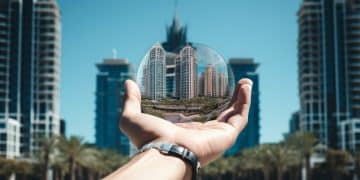Sustainable Investment in the UAE: From Theory to Sustainable Investment Practice

Sustainable Investment in the UAE: An Overview
Sustainable investment in the UAE has gained significant momentum in recent years, as the United Arab Emirates (UAE) has emerged as a leading hub for sustainable investments.
With a diversified economy and strong government commitment to Environmental, Social, and Governance (ESG) principles, the UAE continues to attract investors seeking responsible and future-proof opportunities. Landmark projects such as Expo 2020 Dubai and Masdar City highlight the country’s dedication to sustainable development and innovation.
The Role of ESG in the Region
ESG criteria have become central not only to the UAE’s economic strategy but also to its international reputation. By adopting sustainable practices, the UAE mitigates environmental and financial risks, boosts resource efficiency, and appeals to global investors. Moreover, pressing regional challenges—such as water scarcity and the shift to renewable energy—further underscore the need for ESG integration.
Key Opportunities in the UAE’s Sustainable Market
Investors will find a broad range of opportunities in sectors like renewable energy, sustainable construction, waste management, and clean technology. The UAE government actively promotes sustainable investment through dedicated funds, public-private partnerships, and special economic zones, creating a fertile environment for profitable yet responsible ventures.
Let’s now explore how the UAE aligns with global ESG frameworks and standards.
ESG Fundamentals in the UAE Context
Understanding ESG Criteria
ESG—Environmental, Social, and Governance—is a framework used to evaluate the sustainability of businesses and projects. In the UAE, these criteria hold particular importance as the country aims to harmonize with international sustainability benchmarks.
- Environmental (E): Focuses on managing natural resources, reducing emissions, and adopting clean technologies. The UAE emphasizes solar energy and other renewables as part of its environmental agenda.
- Social (S): Covers corporate relationships with employees and communities. Key concerns in the UAE include labor welfare, human rights, and the broader social impact of business activities.
- Governance (G): Involves corporate ethics, leadership transparency, and compliance. The UAE enforces strict governance policies to foster investor confidence and accountability.
Aligning with Global ESG Standards
The UAE has taken measurable steps to align with international ESG norms, driven by both a desire to attract foreign investment and elevate its global reputation.
- International Agreements: The UAE is a signatory to key climate agreements, including the Paris Agreement, committing to emission reduction targets.
- Sustainability Certifications: Many UAE organizations pursue certifications like LEED to demonstrate environmental responsibility in construction and design.
- Transparency and Reporting: Companies are increasingly encouraged to report ESG-related metrics to enhance accountability and attract impact-focused investors.
Government Support and Regulation
The UAE government plays a central role in shaping the ESG landscape through favorable regulations and support initiatives:
- Incentive Programs: These include tax benefits and subsidies, such as those for solar panel installations and green building projects.
- Strategic Plans: The UAE Energy Strategy 2050 outlines goals to diversify the energy mix and reduce the carbon footprint.
- Strict Oversight: The UAE Securities and Commodities Authority (SCA) enforces ESG compliance among listed companies.
These frameworks reinforce the UAE’s position as a regional leader in sustainable finance. Understanding them is essential for anyone looking to invest responsibly and strategically in the region.
Key Sectors for Sustainable Investment

Renewable Energy and Clean Technology
Clean energy is a cornerstone of the UAE’s sustainability strategy. Major investments have been made in solar, wind, and hybrid energy solutions. A notable example is the Mohammed bin Rashid Al Maktoum Solar Park—one of the world’s largest solar facilities. Investors can explore opportunities in energy production, storage, smart grid systems, and technology platforms designed to increase energy efficiency.
Green Infrastructure and Sustainable Construction
Sustainable infrastructure is rapidly gaining momentum. Green buildings minimize environmental impact by reducing energy and water consumption while improving occupant health. Projects often comply with international standards such as LEED, reflecting the UAE’s dedication to eco-conscious development. Investment opportunities exist in sustainable construction materials, smart building systems, and integrated waste management technologies.
Water Management and Circular Economy
In a desert region like the UAE, water conservation is critical. Investments in desalination technologies, wastewater reuse systems, and smart water management are vital. Simultaneously, the circular economy is emerging through initiatives that promote reuse, recycling, and waste-to-resource innovation. This sector presents strong potential for businesses developing scalable, efficient solutions in materials recovery and environmental services.
Understanding these sectors sets the stage for exploring viable investment mechanisms, from ESG funds to direct project investments.
Investment Mechanisms in the UAE
ESG-Focused Investment Funds
The UAE has developed several ESG-dedicated investment vehicles to facilitate responsible finance. These funds typically target sectors like renewables, green infrastructure, and clean technologies. ESG funds provide clear reporting on social and environmental impact, giving investors confidence and visibility into their portfolio performance.
Private Equity and Venture Capital
Private equity (PE) and venture capital (VC) offer dynamic paths into the sustainable market. Innovative companies—especially startups focused on green tech—often seek funding to scale. PE and VC investors not only inject capital but also bring strategic guidance, accelerating growth and enhancing impact. Early-stage investments in these sectors can yield high returns while supporting sustainability.
Direct Investment in Green Projects
For investors looking for direct exposure, participating in specific green projects—such as solar farms or green building developments—can offer strong returns and tangible impact. An example is direct participation in the Mohammed bin Rashid Solar Park, which has drawn substantial private and institutional investment. While this approach allows greater control, it also requires rigorous due diligence to assess risks and ensure long-term viability.
These mechanisms provide multiple entry points for investors to align financial goals with sustainable values.
| Investment Sector | Key Opportunities | Government Support |
|---|---|---|
| Renewable Energy | Solar and wind farms, energy storage, smart grids | Incentives for solar installations, UAE Energy Strategy 2050 |
| Sustainable Construction | LEED-certified buildings, smart building systems | Green building codes, subsidies for eco-materials |
| Water Management | Desalination, wastewater reuse, smart monitoring | Government investment in water tech and circular economy |
| Clean Technology | Green tech startups, energy-efficient platforms | ESG-focused venture funds, innovation hubs like Masdar City |
| Sustainable Funds | ESG investment vehicles, impact reporting | Policy frameworks encouraging ESG transparency |
Masdar City: A Case Study in Sustainability
Pioneering Urban Sustainability in the UAE
Masdar City in Abu Dhabi stands as a global symbol of sustainable urban planning. Developed by Mubadala, this futuristic city integrates renewable energy, clean transport, and green architecture to drastically reduce environmental impact. It serves as a live demonstration of how sustainable living and innovation can coexist in urban environments.
Investment Opportunities in the Masdar Ecosystem
Masdar City presents unique opportunities for ESG-aligned investments:
- Clean Energy Projects: Investors can contribute to solar and wind energy initiatives within the city.
- Green Buildings: Certified sustainable buildings within Masdar offer attractive real estate investment potential.
- Clean Tech Innovation: Masdar hosts startups and R&D centers focused on clean technologies, opening doors to venture capital and joint development opportunities.
Lessons and Future Outlook
Key takeaways from Masdar include the importance of embedding sustainability in early-stage planning, the value of public-private partnerships, and the need for continuous innovation. As Masdar expands, it is poised to serve as a blueprint for sustainable urban development across the globe.
Practical Considerations for Foreign Investors
Entering the UAE Market
Foreign investors interested in sustainability should start with thorough market research to identify high-potential sectors. Establishing a local presence—via partnerships, branches, or joint ventures—is highly recommended for smoother integration and regulatory navigation.
Legal and Regulatory Requirements
While the UAE offers a business-friendly environment, there are important requirements to meet:
- Commercial Licensing: Investors must obtain sector-specific business licenses issued by economic authorities across the Emirates.
- Compliance with Sector Regulations: Industries tied to sustainability may face additional compliance obligations.
Tax-wise, the UAE imposes no personal income tax, though investors must consider any tax liabilities in their home countries.
Risk Assessment and Due Diligence
Conducting detailed due diligence is essential. Strategies include:
- Evaluating regulatory and political stability
- Assessing long-term viability and scalability of the project
- Identifying ESG-related risks and performance benchmarks
A robust risk management framework ensures that investments remain aligned with both sustainability goals and financial returns.
To read more content on the subject see here





